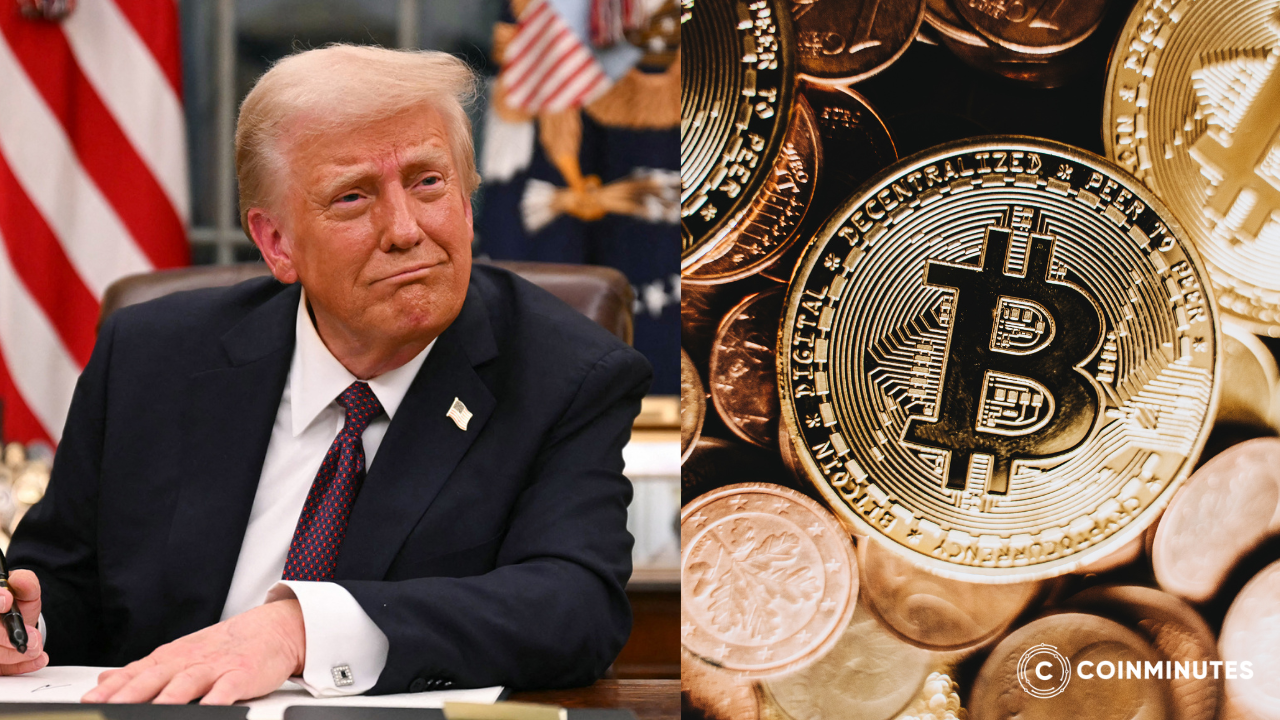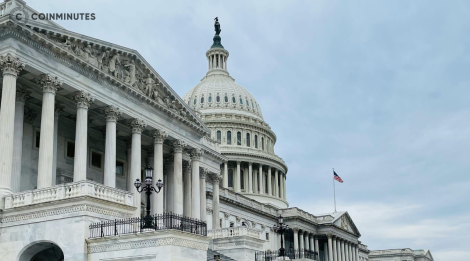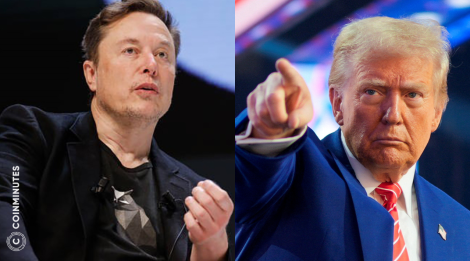President Trump Renews Confidence in Bitcoin and the Crypto Industry

Crypto markets are facing a presidential power shift.
President Donald Trump cemented his dramatic reversal on Bitcoin during a June 27 White House press conference, unveiling a bold national crypto strategy that sent markets soaring. This abrupt policy U-turn steamrolls years of regulatory hesitation, repositioning America to dominate the global blockchain landscape virtually overnight.
Something's changed. Dramatically.
The same president who once dismissed cryptocurrency as backed by "thin air" now positions Bitcoin as the cornerstone of America's financial strategy. What's behind this radical transformation? And more importantly—is your portfolio ready for what comes next?
From Crypto Hater to Bitcoin's Biggest Ally: What Changed?
He couldn't have been clearer in 2019.
"Bitcoin is not money," Trump tweeted bluntly. "Unregulated crypto assets can facilitate unlawful behavior." Fast-forward to March 2025's Digital Asset Summit, and Trump now declares Bitcoin "America's future" while promising to make the U.S. "the crypto capital of the planet."
A head-spinning reversal.
This conversion didn't happen in a flash. It crept in during campaign speeches, gained traction after election night, and solidified into concrete policy by early 2025.
His Nashville address hammered it home.
"Crypto innovation will remain in America, where it belongs."
But why flip so completely?
Some analysts point to political math—cryptocurrency enthusiasm runs high among younger voters Trump needs. National security advisors suggest classified briefings about China's blockchain advances may have spooked him. Critics, however, connect more direct dots.
"Follow the timing," suggests regulatory expert Michael Chen. "His policy transformation aligns precisely with his family's expanding cryptocurrency businesses."
Regardless of motivation, the market consequences are undeniable.
Have your digital assets jumped in value recently? Now you know why.

Presidential Playbook: Trump's Five-Alarm Strategy Reshapes Crypto Rules
In February, Trump established the Strategic Bitcoin Reserve—essentially a digital Fort Knox constructed from cryptocurrency seized in criminal cases.
"We're putting bad guys' Bitcoin to work for the American people," Trump announced, potentially creating his administration's most enduring financial legacy.
This wasn't an isolated move.
It represents just one piece of a comprehensive strategy that includes:
-
Directing the SEC to drop lawsuits against major crypto companies
-
Ending banking restrictions that had strangled crypto businesses
-
Pushing the GENIUS Act through Congress
-
Appointing pro-crypto officials to key regulatory positions
Why should you care about the GENIUS Act?
The Generating Encoded Network Infrastructure for Users and Savings Act prevents the SEC from classifying most cryptocurrencies as securities—effectively solving the regulatory uncertainty that kept institutional investors on the sidelines for years.
"Innovation flourishes with clear boundaries and minimal interference," explained Treasury Secretary Scott Bessent after the Senate passed the bill.
Wall Street immediately took notice. Did you?
Wall Street's Crypto Rush: Big Money Floods In After Years of Waiting
The numbers look almost unreal.
Crypto markets have surged roughly 40% since January, with Bitcoin smashing through previous records in June. Unlike earlier booms fueled by retail traders, this rally comes from institutional investors pouring in billions.
BlackRock's Bitcoin ETF alone has absorbed over $12 billion in new investments during Q2 2025. Financial giants like Fidelity and Vanguard now scramble to expand their crypto offerings as clients clamor for access.
Why the sudden change of heart?
"Nothing terrifies Wall Street more than uncertainty," explains Jessica Morgan, chief investment strategist at CoinMetrics. "The Trump administration's clear regulatory framework removed the primary obstacle keeping serious institutional money away."
This enthusiasm has spread to everyday investors. A recent survey found 60% of crypto-aware Americans believe digital asset values will continue rising under Trump's policies. Trading volumes back this optimism, showing an 87% year-over-year explosion.
Not everyone's buying it.
"We're watching a policy-driven bubble inflated by glaring conflicts of interest," warns economist Paul Krugman. "Cryptocurrencies' fundamental flaws remain unchanged—only the regulatory landscape has shifted."
Sustainable breakthrough or temporary bubble? Your financial future might depend on the answer.
The Family Business: Trump's Growing Crypto Empire Raises Questions
Where exactly is the money flowing?
Since 2024, the Trump family has rapidly expanded into digital assets through multiple ventures that directly benefit from the administration's new policies:
The TRUMP and MELANIA memecoins, managed by longtime Trump associate Bill Zanker's company, have seen dramatic price spikes immediately following presidential announcements.
World Liberty Financial, a DeFi project majority-controlled by the Trump family, raised $550 million and partnered with Binance to launch the USD1 stablecoin. Trump personally pocketed $57 million in advisory fees in fiscal year 2024 alone.
Trump Media and Technology Group has applied to establish a Bitcoin ETF and aims to raise $2.5 billion for Bitcoin investments.
American Bitcoin, founded by Trump's sons, recently secured federal land leases for mining operations at rates competitors can't access.
These connections have triggered ethics alarms across Washington.
"This may be the most flagrant conflict of interest in presidential history," claimed Representative Alexandria Ocasio-Cortez, pointing out how Trump's policies directly enrich businesses tied to his family and campaign donors.
Trump dismisses these concerns with his trademark confidence.
"I'm a businessman who understands this technology," he stated matter-of-factly at the press conference. "That's exactly what America needs right now."
When was the last time a president so openly merged personal business with national policy?
Your Crypto Future: What Trump's Blockchain Revolution Means For Investors
This is merely the opening act.
Trump's administration has outlined an ambitious crypto roadmap that could fundamentally transform both government operations and financial markets:
-
A national blockchain identity system that would eventually replace traditional government ID methods
-
Expanded Bitcoin purchases for the Strategic Reserve using tax dollars
-
Tax breaks specifically targeting crypto mining operations using renewable energy
-
Blockchain integration into federal voting systems to "ensure election integrity"
-
Development of a U.S. dollar-backed central bank digital currency
The regulatory fast-track shows no signs of slowing. SEC Chairman Jay Clayton III has promised a "permission-less innovation framework" to dramatically streamline processes for crypto startups.
What does this mean for your digital wallet?
The short-term outlook seems overwhelmingly bullish—government support typically drives asset values higher. But serious questions about sustainability and potential political blowback loom over long-term prospects.
"We're witnessing an unprecedented experiment in real time," notes blockchain researcher Sarah Chen. "No major economy has ever embraced cryptocurrency this aggressively or quickly. The ripple effects—good and bad—will take years to fully materialize."
One fact remains indisputable: America's relationship with digital assets has fundamentally transformed. Whether this represents a visionary pivot toward financial innovation or a dangerous blurring of public policy and private profit remains hotly debated.
The global crypto landscape has been permanently redrawn. Your investment strategy should adapt to this new reality—while staying alert to both the opportunities and risks that lie ahead.
 English
English
 Vietnamese
Vietnamese














